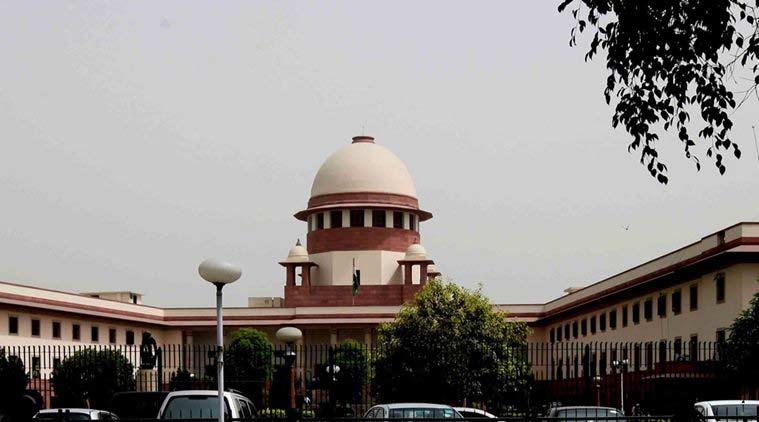Stay updated with the latest - Click here to follow us on Instagram
Supreme Court commutes death penalty to man, says his poems show he’s reformative
The Bombay High Court had confirmed the death sentence in June 2006 against which Borkar approached the Supreme Court. His counsel told the apex court that he had realised his mistake.
 These “mitigating circumstances”, the court said, were that at the time of commission of the offence, he was 22, that he had already spent 18 years in jail. (File)
These “mitigating circumstances”, the court said, were that at the time of commission of the offence, he was 22, that he had already spent 18 years in jail. (File)
THE SUPREME Court has commuted the death sentence of a man — convicted of killing a child for ransom — to life imprisonment, relying among others on poems that he wrote in jail to conclude that he “would not be a continuing threat to society”.
A bench of Justices A K Sikri, S Abdul Nazeer and M R Shah, which perused the file of Dnyaneshwar Suresh Borkar, held that capital punishment was not warranted in the facts and circumstances of the case as “mitigating circumstances are in favour of the accused”.
These “mitigating circumstances”, the court said, were that at the time of commission of the offence, he was 22, that he had already spent 18 years in jail, his good conduct in jail and that he had tried to join society and become a civilised man and completed his BA while in prison.
The court said that “from the poems, written by him in the jail, it appears that he has realised his mistake which was committed by him at the time when he was of young age and that he is reformative” and added that “therefore the appellant can be reformed and rehabilitated”. It concluded that although the offence was “undoubtedly… brutal”, it “does not warrant death sentence”. “It is required to be noted that the accused was not a previous convict or a professional killer,” the judgment said.
The Bombay High Court had confirmed the death sentence in June 2006 against which Borkar approached the Supreme Court. His counsel told the apex court that he had realised his mistake.







